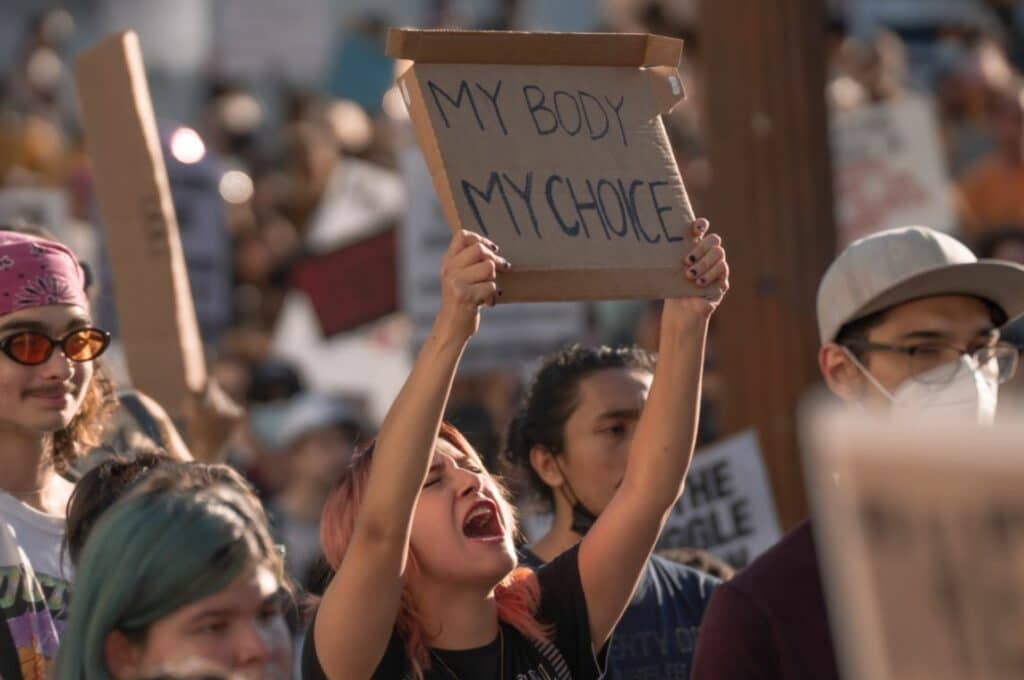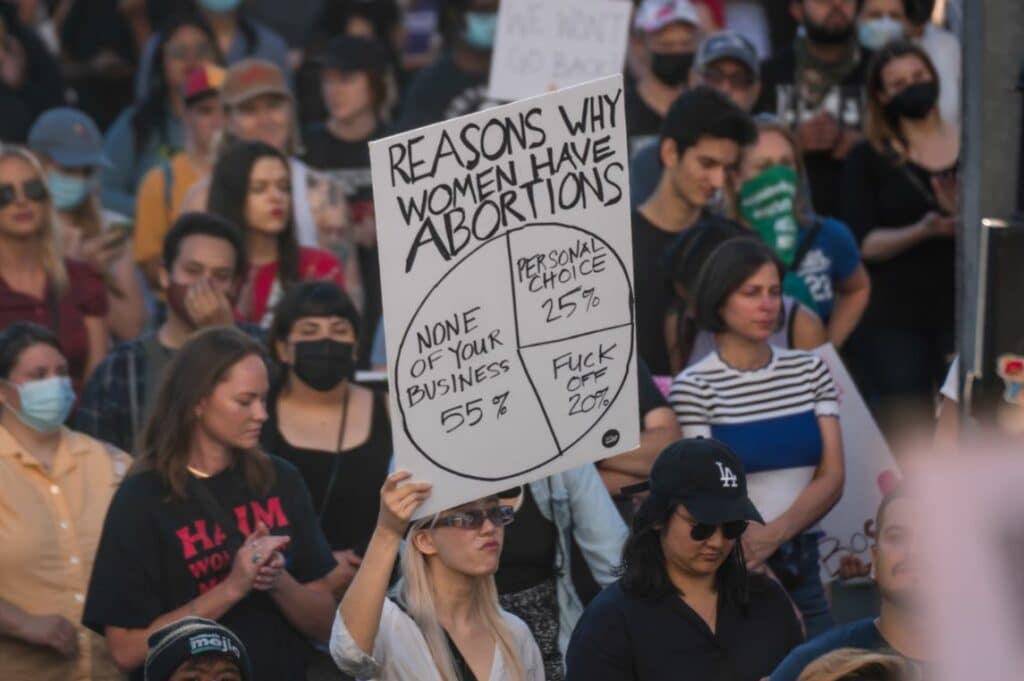Abortion laws in Europe
Since 2018, numerous European nations have implemented more significant reforms, and have taken rightful legal measures to clear any potentially harmful surgical or regulatory hurdles to accessing abortions.
The period of abortion legalization or decriminalization
[table “29” not found /]
Among all European countries, 39 have authorized abortion on demand, two permitted abortion for a variety of social reasons, and six prohibited abortion for one of those reasons. Over 95 percent of women of reproductive age in Europe reside in countries that allow abortion on demand or broad social grounds.
EU Legal Access Grounds to Abortion
Almost every country in the European Union has legalized abortion on demand or a broader societal basis. Even former communist nations in Europe have legalized abortion. Only Poland allows for circumstantial abortion in cases where the woman’s life or health is in danger, or if the pregnancy is the consequence of rape or incest.
Here’s a breakdown of abortion rights in Europe and throughout the world, as well as views towards them:
| Country | Abortion should be permitted when a woman decides she wants one | Abortion should be permitted under special circumstances (rape, etc) | Not sure / prefer not to say | Abortion should not be permitted unless it`s a matter of life or death or out of health concerns | Abortions should never be permitted, no matter what the circumstances are |
|---|---|---|---|---|---|
| Sweden | 75% | 13% | 6% | 5% | 1% |
| Netherlands | 64% | 21% | 8% | 5% | 1% |
| France | 64% | 18% | 13% | 3% | 2% |
| Germany | 54% | 27% | 11% | 6% | 2% |
| Great Britain | 65% | 16% | 12% | 5% | 2% |
| Spain | 59% | 22% | 11% | 7% | 1% |
| Belgium | 55% | 24% | 12% | 6% | 3% |
| South Korea | 41% | 38% | 7% | 19% | 4% |
| Hungary | 59% | 20% | 10% | 8% | 3% |
| Argentina | 44% | 35% | 7% | 10% | 4% |
| Canada | 60% | 16% | 13% | 7% | 3% |
| Italy | 60% | 17% | 12% | 9% | 2% |
| Australia | 57% | 20% | 13% | 8% | 3% |
| Poland | 33% | 41% | 12% | 8% | 6% |
| Chile | 41% | 32% | 8% | 12% | 7% |
| Romania | 56% | 15% | 10% | 17% | 2% |
| Russia | 51% | 17% | 21% | 9% | 2% |
| Japan | 41% | 26% | 26% | 5% | 2% |
| U.S. | 42% | 24% | 12% | 14% | 8% |
| Brazil | 31% | 33% | 13% | 16% | 8% |
| India | 39% | 25% | 12% | 18% | 6% |
| South Africa | 37% | 25% | 14% | 15% | 9% |
| Colombia | 26% | 36% | 9% | 20% | 9% |
| Mexico | 24% | 35% | 14% | 15% | 12% |
| Turkey | 45% | 11% | 18% | 17% | 9% |
| Peru | 15% | 39% | 12% | 23% | 12% |
| Malaysia | 14% | 16% | 16% | 43% | 11% |
Access to Abortion On Request
On demand abortion implies that your doctor or another medical practitioners will perform the procedure upon your request. There is no requirement to establish or demonstrate that the abortion is for a specific purpose or reason. This implies that the pregnant woman has the last say on whether to continue with or terminate her pregnancy.
- Abortion on demand in the EU is allowed in Austria, Belgium, Bulgaria, Croatia, Cyprus, Czech Republic, Denmark, Estonia, France, Germany, Greece, Hungary, Ireland, Italy, Latvia, Lithuania, Luxembourg, the Netherlands, Portugal, Romania, Slovakia, Slovenia, Spain, and Sweden.
- Broad societal reasons: Finland.
Broad Social Grounds
Countries that allow abortion on broad social or economic reasons have laws that are typically broadly construed to allow abortion under a wide variety of conditions. In assessing the possible impact of pregnancy and childbirth, these nations frequently evaluate a woman or girl’s actual or reasonably anticipated surroundings, as well as her social and economic conditions.
Among all countries in Europe, the abortion law in UK and Finland have been amended to include a variety of broad social reasons.
Sexual Assault
Abortion is permitted in all nations if it is requested by a woman or for larger societal reasons. Women and girls who become pregnant as a consequence of sexual harassment can undergo abortions under this circumstance, without any requirement that they report or prove the violence they experienced. As a result, many abortion laws in Europe do not provide an explicit ground for abortion access in cases of sexual assault.
Across the Entire European Continent
As for the European continent as a whole, the procedure of abortion is permitted in 41 countries on request or for broad societal reasons. 39 of these nations have allowed abortion on demand, either without limitation or for medical reasons.
European countries and abortion on request
Among the countries that allow abortion on request are:
Albania, Armenia, Austria, Azerbaijan, Belgium, Bosnia and Herzegovina, Bulgaria, Croatia, Cyprus, Czech Republic, Denmark, Estonia, France, Georgia, Germany, Greece, Hungary, Iceland, Ireland, Italy, Latvia, Lithuania, Luxembourg, Republic of Moldova, Montenegro, Netherlands, North Macedonia, Norway, Portugal, Romania, Russian Federation, Serbia, Slovak Republic, Slovenia, Spain, Sweden, Switzerland, Turkey, and Ukraine.
Time Restrictions
A number of European nations have passed legislations to extend the time limitations for undergoing abortions on request or for wide societal reasons. These revisions reflect that, while the majority of abortions in Europe occur within the first trimester of pregnancy, strict time constraints can have negative consequences, creating pressure and additional obstacles for women seeking pregnancy termination.
Some European nations’ laws limit on demand abortions — or abortions that fall under larger social concerns – until 18 to 24 weeks of pregnancy with several limitations throughout the first trimester of pregnancy. All of these laws also permit specific conditions during the later stages of pregnancy, such as when a woman’s health or life is in danger. For these reasons, standard practice in Europe does not limit duration.
Highly Restrictive European Abortion Laws
Only Andorra, Liechtenstein, Malta, Monaco, Poland, and San Marino have the strictest abortion laws in Europe which prohibit abortion on demand or under broad societal grounds.
- Andorra, Malta, and San Marino do not allow abortion at all.
- Monaco and Poland permit it only when the pregnancy is the consequence of a sexual assault, a woman’s life or health is in danger, or there is a serious fetal abnormality.
- Abortion is legal in Liechtenstein only when a woman’s life or health is in danger, or when the pregnancy is the consequence of a sexual assault.
- The Danish authority over the Faroe Islands likewise maintains a stringent legal framework.
Pushback and Regression
Over the last few years, several European countries have witnessed initiatives to eliminate current legislative protections for women against abortion. Even though the overall trend in liberalization is one of growth, it can sometimes result in the implementation of additional backward requirements that women must fulfill before getting an abortion. This includes mandated biased counseling as well as mandated waiting periods.
There have also been attempts to outright ban abortion or to eliminate the legal foundation for abortion, as well as many judicial cases challenging the constitutionality of abortion access, which attempt to enhance medical practioners’ rights to deny lawful abortion services.
Measures to rescind reproductive rights breach the principle of non-regression under the international human rights law by creating new barriers to abortion treatment or lowering the legality of abortion care.
Still-Existing Access Impediments
Many European nations that have legalized abortion on request or broad societal grounds continue to create administrative and regulatory hurdles that obstruct access to abortion services in practice, and some governments are taking measures to remove these impediments.
Abortions On Request – Waiting Periods
Albanian, Armenian, Belgian, Georgian, Hungarian, Irish, Italian, Latvian, Luxembourg, Netherlands, Portugal, Russian Federation, Slovak Republic, Spanish, and German abortion laws still mandate a statutory waiting period to occur between the day abortion is initially sought and the date it is performed.
These waiting times impede access to timely and adequate care and restrict women’s human rights and decision-making autonomy. According to the World Health Organization, the legislation should not impose these needless medical delays.
Time Limits
For a limited period in some European countries, on demand abortion can have a detrimental impact on women and impede their access to necessary health treatments. When utilized in a restricted capacity, short-term limitations are especially harmful to adolescent girls and women living in vulnerable areas, who may be unable to get custody within the stipulated time limit. As a result, women may be forced to go to neighboring states to obtain legal abortions or to receive illegal abortion care at home and risk criminal punishment.
Obligatory Counseling
Twelve European countries (Albania, Armenia, Belgium, Bosnia and Herzegovina, Georgia, Germany, Hungary, Italy, Lithuania, the Netherlands, the Russian Federation, and the Slovak Republic) require women to receive obligatory counseling or information from their doctors before having an abortion. Many of these countries’ legislations, including abortion laws in Germany and Hungary, require purposefully biased and directed counseling to influence women’s decision-making and prevent them from obtaining abortions.
Mandatory counseling violates women’s human rights and is especially problematic when biased information is involved. Pre-abortion counseling is not recommended by the World Health Organization. Abortion information should always be objective, non-instructive, and medically correct.
Procedures For Third-Party Authorization
Women seeking abortion services in certain European nations must first obtain permission from their doctor, parent, guardian, or official board, as per the abortion laws in Europe. In certain circumstances, women in poverty, women with disabilities, women from marginalized groups, and teenage girls are disproportionately affected by these initiatives. For example, parental consent laws frequently violate and endanger the human rights of young women.
Care Refusals Based On Conscience And Religion
The inability of governments in various European countries to appropriately address medical professionals’ refusal of moral or religious abortion treatment has diminished access to abortion services. As for abortion laws in Italy, state officials there are failing to ensure that these refusals do not lead to delays or denials of care for women seeking legal abortion care.
 Distress Necessities
Distress Necessities
Albania, Hungary, Italy, Switzerland, and the Netherlands have legalized on-demand abortions but also still require women to explain that they are having an abortion because of their social or family circumstances or because the next pregnancy will cause them pain. The rule stigmatizes abortion and undermines independent decision-making, and it should be removed. In Belgium and France abortion law, they have introduced reforms in the past few years that remove the pre-existing hardship provisions.
Criminalization
Abortion has been permitted in certain European nations on desire or for larger social reasons. Outside the area of relevant legislation, European abortion laws contain particular criminal punishments for abortions.
In a few countries, women who breach the law to obtain abortion services face criminal charges. This might include everything from penalties to jail. However, more typically, regulations indicate that medical practitioners or anyone who help women in obtaining illegal abortion services face criminal penalties ranging from fines to jail terms.
Criminal abortion separates this type of medical treatment from others and can endanger a woman’s health and well-being. It has the potential to delay or impede access to post-abortion treatment. Growing impediments to legal custody, as well as a chilling effect on knowledge and treatment for medical professionals are exacerbating the severity of abortion stigma.
Frequently Asked Questions Regarding Abortion Laws Across Europe & The Globe
What are all the European abortion laws?
All abortion laws around the world are different to one another. In some countries, abortion is legal, while in others it is completely criminalized. European abortion laws, however, tend to be generally lenient, with some exceptions.
What are some of the strictest abortion laws in Europe?
Andorra, Liechtenstein, Malta, Monaco, Poland, and San Marino have the strictest abortion laws in Europe which prohibit abortions in all circumstances. Malta’s abortion law, however, could lead to imprisonment.
Where is abortion illegal in Europe?
Abortion is illegal in all cases in Malta, Andorra, and San Marino, where pregnant women and medical practitioners may be tried under the eye of the law.
Is abortion illegal in Greece?
Abortion is completely legal in Greece. In fact, Greece has some of the most lenient abortion laws across Europe.
What countries allow free abortion in Europe?
The cost of abortion depends on the country’s abortion laws: in some countries abortions are paid by patients while in other countries they are paid by the state. In Portugal, for example, Abortion is completely legal in Greece paid for by the state, up to ten weeks into the pregnancy. This was approved by a referendum regarding abortion law in Portugal in 2007.


 Distress Necessities
Distress Necessities
